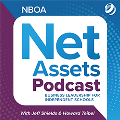Apr 24, 2020, 5:26 PM
(From Venable LLP) On April 23, the Treasury and SBA issued new guidance regarding the “necessity” certification required for all PPP loans. Specifically, the SBA stated that certain businesses which have access to other sources of liquidity sufficient to support their ongoing operations in a manner that is not significantly detrimental to the business may be ineligible for loans under the PPP program. The new guidance could have serious implications for small private businesses, especially those that have not yet experienced a tangible economic hardship as a result of the COVID-19 emergency. Schools should consider documenting their reasoning for applying for and obtaining PPP funds, suggest experts at Venable LLP.
(From Inside Higher Ed) Facing public backlash and pressure from the Trump administration, Harvard University and several other elite institutions have announced they will not accept federal coronavirus relief funds. "The intense focus by politicians and others on Harvard in connection with this program may undermine participation in a relief effort that Congress created and the President signed into law for the purpose of helping students and institutions whose financial challenges in the coming months may be most severe," the university said in a statement. Harvard's decision also comes as Secretary of Education Betsy DeVos called on wealthy institutions to reject their allocation of the Higher Education Emergency Relief Fund, though it is unclear how DeVos will define “wealthy institutions” going forward.
(From Holland & Knight) Independent K-12 schools applying for or accepting CARES Act assistance must consider their ability to comply with additional federal requirements for the time that they are subject to the government loan. Holland & Knight has outlined the primary ways that anti-discrimination federal statutes are most likely to impact co-educational independent schools:
(From Bolton & Compnay) Bolton & Company has identified several developments that could impact independent school insurance. In California, insurers have been instructed to reduce policyholder premiums commensurate with reduction of exposure related to COVID-19. For independent schools, this will have specific impact on commercial automobile, commercial liability, commercial multiple peril, private passenger automobile, workers’ compensation and an additional coverage premium impacted by the pandemic. However, no school has yet to receive a premium refund and insurance companies have up to four months (taking into account the 120 day timeline) to develop, submit and approve said refunds.

Listen to the latest episode of the Net Assets podcast.